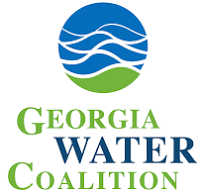
ATLANTA – The Georgia Water Coalition released its annual “Dirty Dozen” list for 2024 Thursday, a combination of specific polluted waterways across the state and policies that threaten the health of Georgia’s water resources.
The report identified threats to the following specific waterways:
- Abercorn Creek, where growth spurred by the Port of Savannah threatens regional water supplies.
- Altamaha River, where the state continues to allow a pulp mill in Jesup to pollute the river.
- Conasauga and Ogeechee rivers, where the presence of toxic “forever chemicals” taints fish and threatens human health.
- Coosa River, where Georgia Power plans to leave coal ash in one pond at the closed Plant Hammond to remain in contact with groundwater.
- Flint River in Decatur County, where plans for a $400 million monkey breeding facility have residents worried about the spread of disease.
- Floridan Aquifer in South Georgia, where growth in coastal counties is straining underground water supplies.
- Okefenokee Swamp, where the state is poised to issue permits for a proposed titanium mine along Trail Ridge.
More generally, the report warned about the drain on energy and water supplies posed by an influx of massive data centers in Georgia and a push to privatize public water resources.
Much of the stress on the state’s waterways stems from the rapid growth in recent years that has won Georgia the status of being the No.-1 state to do business, said Jesse Demonbreun-Chapman, executive director of the Coosa River Basin Initiative, one of the Georgia Water Coalition’s more than 260 member organizations.
“Our success in economic development has had a downside,” he said.
Joe Cook of the Georgia River Network, who chaired the committee that selected the Dirty Dozen, said the controversy over the proposed monkey breeding facility in Bainbridge drew attention to the role local development authorities play in crafting secret deals offering tax incentives to lure businesses to their communities. The company behind the project, Safer Human Medicine, is looking to house 30,000 monkeys for medical research.
“That’s more monkeys than there are people in Decatur County,” Cook said.
The report identified PFAS, a group of manmade “forever chemicals” used to make fabric stain resistant and fire retardant, as an emerging pollutant. While the carpet and textile industries are phasing them out, they’re still polluting rivers and contaminating fish, especially in the Conasauga and Ogeechee rivers.
Gov. Brian Kemp vetoed legislation this week that would have temporarily suspended a state sales tax exemption aimed at attracting data centers. The bill’s supporters said the two-year pause in the exemption was needed to allow time to study the impacts the industry’s rapid growth is having on energy and water supplies.
“Tax breaks to lure data centers to Georgia have had unintended consequences,” Cook said. “They use tremendous amounts of energy and water.”
Finally, the report cited two bills the General Assembly passed this year aimed at privatizing the state’s water resources. The water coalition criticized measures granting Georgians the right to hunt and fish in the state’s navigable rivers and streams as inadequate for protecting public access.
Another bill the report slammed will allow a private water utility to serve new homes near the Hyundai plant without the consent of local governments.
“
